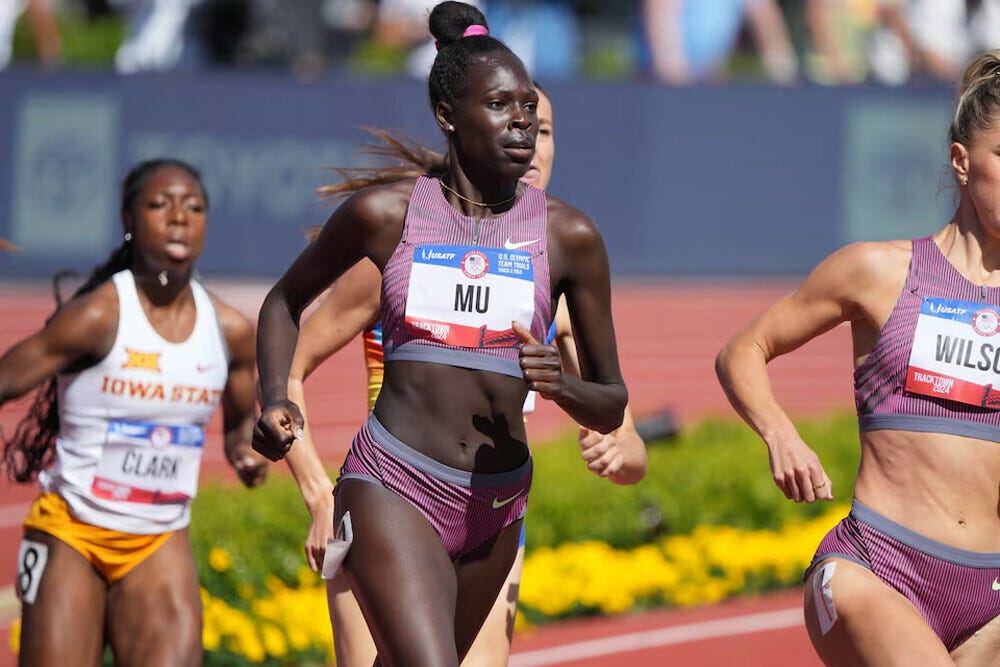Let’s Use Prediction Markets for Olympic Athlete Selection!
A better way to do this
Athing Mu is, by popular acclamation, the best woman in the world running 800 meters. She holds the US record, and is absolutely in her prime. Unfortunately, in the Olympic trials, she tripped and fell. The US Olympic committee’s rules for qualifying in the Olympics are simple, but harsh. There is one race at the end. The three first finishers go to the Olympics. That’s it. So, the current gold medalist and 2022 world champion will not represent the US in her best event.
The goal of every Olympic committee should be to win their country medals. They should put the best athletes forward. A single race is unlikely to maximize the odds of winning — there is considerable variance from race to race. At the same time, a small group choosing is likely to be too risk averse, too deferential to big names, and besides that, likely to stir up bitterness and accusations of corruption.
So, I propose that, for each potential qualifier, the Olympic committee sets up a market on whether or not they would win a medal if they go. The price at which a yes share sells can be interpreted as the likelihood that they would win. The committee can set up additional markets for each position they might achieve. (E.g. 4th, 5th, 6th etc). They announce when the betting will finish, and pick the three contenders with the highest odds of winning gold at the end, or according to some formula incorporating beliefs about their other finishing positions (if they wish for a lower variance candidate, and the odds of any candidate winning gold are extremely small).
I know that I am an enthusiast of prediction markets, and that every nail looks solvable with its hammer. It nevertheless seems that this evades many of the problems which prediction markets can face. Liquidity is provided by enthusiasts for the athlete. Problems of small probabilities not being worth bidding down to zero is avoided by having the Olympics occur soon after the selection of athletes. Sports are something which people love to be on, and you don’t have to subsidize the market for it to function — as Las Vegas is proof of.
This need not supersede the Olympic trials at all, either! Athletes are incentivized to show as much information to the market as they can. You run the races to show that you are capable. Choosing to skip races will doubtless negatively impact your chances of winning, and thus disincentivize investors from betting on you.
It won’t be perfect. Of course not. But it would certainly be better than one race deciding everything, and much better than a committee deciding who goes to the Olympics.

